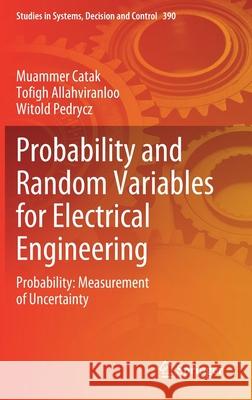Probability and Random Variables for Electrical Engineering: Probability: Measurement of Uncertainty » książka
topmenu
Probability and Random Variables for Electrical Engineering: Probability: Measurement of Uncertainty
ISBN-13: 9783030829216 / Angielski / Twarda / 2021 / 174 str.
Probability and Random Variables for Electrical Engineering: Probability: Measurement of Uncertainty
ISBN-13: 9783030829216 / Angielski / Twarda / 2021 / 174 str.
cena 287,05
(netto: 273,38 VAT: 5%)
Najniższa cena z 30 dni: 269,85
(netto: 273,38 VAT: 5%)
Najniższa cena z 30 dni: 269,85
Termin realizacji zamówienia:
ok. 16-18 dni roboczych.
ok. 16-18 dni roboczych.
Darmowa dostawa!
Kategorie:
Kategorie BISAC:
Wydawca:
Springer
Seria wydawnicza:
Język:
Angielski
ISBN-13:
9783030829216
Rok wydania:
2021
Wydanie:
2022
Numer serii:
000477984
Ilość stron:
174
Waga:
0.43 kg
Wymiary:
23.39 x 15.6 x 1.27
Oprawa:
Twarda
Wolumenów:
01
Dodatkowe informacje:
Wydanie ilustrowane











